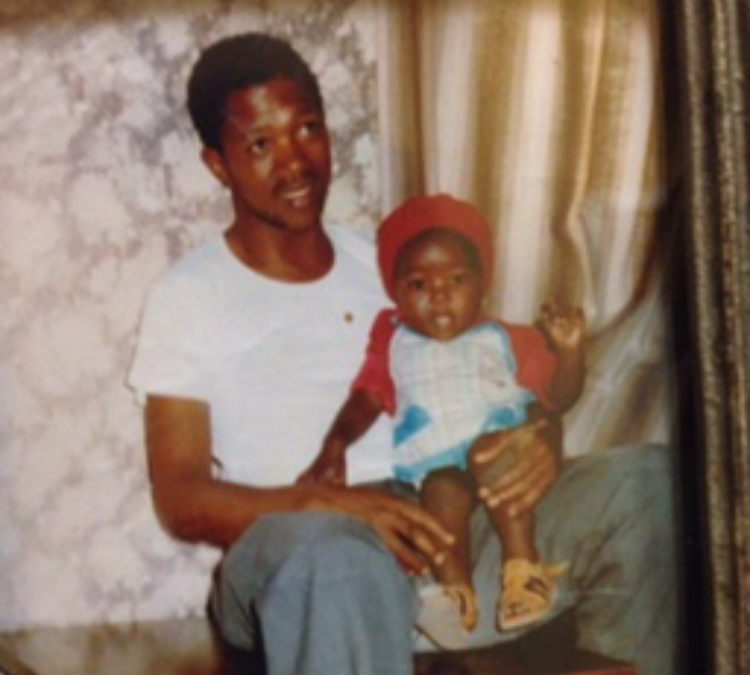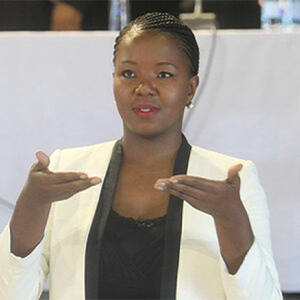Growing up as a Child of Deaf Adults (CODA) shaped every part of my identity. My first language is South African Sign Language (SASL). My earliest memories are filled with the rhythm of hands moving in conversation, expressive faces, upper body movement and the quiet strength of a community often overlooked, albeit sometimes unintentionally. I didn’t just learn to interpret and understand words: I learned to interpret worlds.
Being a Coda meant I was a bridge between my parents, paternal uncle, neighboring Deaf communities and the hearing world, between generations and between tri-cultural and tri-lingual spaces. It meant navigating not just languages, but emotions, nuance, human rights and dignity. It meant growing up fast, advocating early, and understanding deeply what it means to be a Coda. And it meant inheriting a legacy of resilience and with constant questioning of my identity and sense of belonging. My parents and paternal uncle taught me that Deafness is not a disability: it’s a culture, a community, a way of being. They were proud, strong and full of wisdom.

My activism began with a simple, perhaps naive, goal: to ensure equal access for my family and neighboring communities. Little did I know that activism would expand to encompass social justice, racial equity and the broader fight for equality. I often asked, "Why isn’t SASL recognized as an official language? Why are my parents and uncle not seen, nor heard, not afforded equal opportunity in mainstream society? Why is Deaf history so often ignored or unknown?"
These questions led me to create the book and documentary Apartheid: Through the Lens of Black Deaf Elders. A tribute to the unsung heroes of South Africa’s Deaf community. These elders lived through systemic oppression and still found ways to communicate, educate and resist. Their stories are not just Deaf stories, they are human stories. And they deserve to be written and told.
For me, activism is rooted in storytelling. When we tell our stories, we reclaim our power and narratives. We challenge stereotypes. We build bridges. Whether I’m speaking at a conference, mentoring young interpreters, or collaborating with Deaf elders, my goal remains the same: to amplify silenced voices and celebrate the language that gave me my identity.
Honoring sign language rights
International Week of Deaf People is celebrated annually during the third week of September and this year, from Sept. 22-28, the theme is: No Human Rights Without Sign Language Rights. This is more than a calendar event. It’s a global recognition of the power of sign languages to connect, inspire, educate, empower, innovate and liberate.
For me, it’s personal. It’s a time to honor my parents and uncle, who taught me that silence is power. It’s a time to celebrate the Deaf community’s contributions to culture, education and justice. And it’s a time to remind the world that accessibility is not charity, it’s a human right.
The World Federation of the Deaf (WFD) will be highlighting daily themes throughout the week, all centered on human rights and language access. This brings me to a recent experience we had as a family. My father was denied access to the justice system. His fundamental human rights were violated because without access to language and quality interpreting services, he could not fully exercise his legal rights. Our family was fortunate to have the means to secure professional and qualified sign language interpreters and a Deaf interpreter. However, this is not the reality for many Deaf individuals, particularly those in remote and rural areas who cannot afford to hire an interpreter. Despite SASL being declared South Africa’s 12th official language in 2023, access to interpreting services in the justice system remains a major challenge.
Creative activism: Lessons from Chile and Oxford
In March 2024, I participated in the Atlantic Fellows XR (Extended Reality) Narrative Residency in Oxford and London, hosted by the Atlantic Institute. Later, in November, I was part of an Atlantic Fellows cohort in Santiago, Chile, hosted by the Atlantic Institute, for a convening called Catalyzing Change: Approaches to Critical Conversations. These experiences were transformative.
They allowed me to explore how immersive technologies and creative methodologies can support my activism, especially in current work on storytelling with Black Deaf elders. I learned about empathetic flexibility, community responsibility, and to understand the true meaning of social equity and social equality in mainstream society.
Both spaces offered innovative tools and inspiration to amplify marginalized voices. I felt seen and heard. We shared spontaneous moments of learning and co-creation, developing new approaches to critical dialogue and systemic change. These experiences deepened my commitment to:
- Amplifying the voices of Black Deaf elders
- Using digital tools to preserve and share their histories
- Learning from global methodologies in art, technology, and storytelling
- Building connections across disciplines and geographies
- Co-creating inclusive strategies for accessible and critical conversations that honor diverse lived experiences
A call to action
As we celebrate International Week of Deaf People, I invite everyone hearing, Deaf, Coda, interpreters and allies to reflect on the role of sign languages and Deaf culture in shaping inclusive societies. Learn a few signs. Watch a Deaf-led film. Support Deaf-owned businesses, Deaf artists, CODA organizations, and Deaf schools.
And most importantly, listen not just with your ears, but with your eyes and heart.
Coda love 🤟


.jpg)
.jpg)



.png)

